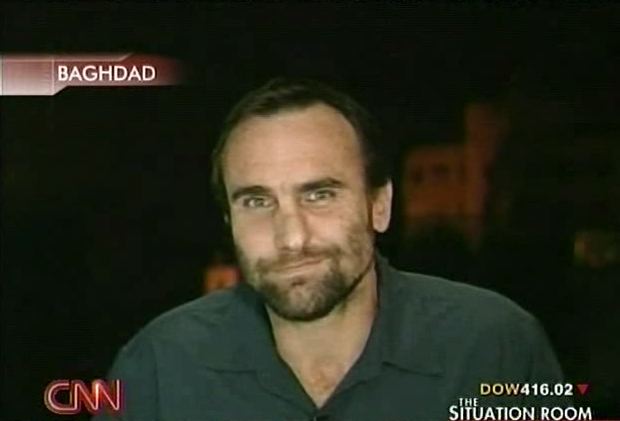TSR: "This meeting is really only a pre-meeting meeting."

Click photo to play
Length: 4:24
JOHN KING: Bombings and brutal slayings shook Iraq today. But could the bloodshed soon bring peace talks in which the United States would sit down with Iraq's neighbors?
Joining us now from Baghdad, our correspondent, Michael Ware.
Michael, let's break down this regional conference. More discussion today of getting Iran, Syria, Iraq and the United States at the table to talk about the future of Iraq. The administration has resisted for a long time talking directly to Iran and Syria.
Let's take the United States first.
What could be gained, if anything, for the Bush administration, besides simply being able to tell its critics, "be quiet, we finally sat down with them"?
MICHAEL WARE, CNN CORRESPONDENT: Well, there's obviously a symbolic gesture or symbolic nature to this. It shows that there's a degree of rapprochement from the U.S. both, you know, militarily, politically, and, indeed, diplomatically here in Iraq, looking to reach out to all parties, regardless of any differences on other issues -- the focus being Iraq, Iraq, Iraq.
However, beyond the symbolism of this approach, there is little, I would imagine, to really be gained. I mean the back-channel communications between the U.S. and Iran are already open. The primary conduit, of course, being the Iraqi government, an entity both Tehran and Washington essentially share.
I mean it was two years ago I had a U.S. diplomat tell me that the Americans assume anything they tell the Iraqi government ends up directly in Tehran anyway.
So more than anything, this is a symbolic gesture, trying to rally international support for what could be a new diplomatic push.
KING: And if you are Prime Minister Nouri Al-Maliki or the very troubled, endangered Iraqi government, what are you looking for out of this conference, especially on the number one issue every day, improving security?
WARE: Well, for security, what they are hoping is that they can somehow dampen down or temper external support for various fighting factions here in the country.
Now, is that going to come about through a series of diplomatic meetings?
That's unlikely. And let's not forget, this first meeting is really only a pre-meeting meeting. This is a getting together of a number of bureaucrats and representatives to pave the ground for what should be a ministerial-level meeting that Secretary Rice believes could come in April.
So, really, there's a lot of questions that remain to be answered. And we've been down this road before. We've seen the Americans and the Iranians talk about having talks and not do it. We've had this government, now in its last throes -- this is its last ditch attempt, as President Bush has made very clear, to get things right.
We see it pushing that through the Baghdad security plan militarily. This clearly is the diplomatic push -- John.
KING: And, Michael, you mentioned symbolism at the top. Imagine a table that has the government of the United States, the government of Iraq and the government of Iran. Iran certainly could say this is proof we are a player in the region.
What else would Tehran want at such a meeting?
WARE: Well, I mean, I think that apart from that kind of public acknowledgement, that endorsement of their regional role that they have, in fact, been displaying here, not just in Iraq, but, of course, also in Lebanon through Hezbollah, one of its other beneficiaries of its military intelligence and political support. I mean it's been flexing a lot of muscle in the region.
So this really would be an endorsement.
However, what it will really be looking for will not be happening at the negotiating table. What it'll be looking for is real concessions from the U.S. to pull back Iran's military efforts in this country.
It's not going to do that cheaply. It's going to want something real and we're not going to see that openly dealt with on the negotiating table -- John.
KING: And, Michael, in closing, you sound a tad pessimistic.
If you're the average Iraqi and what you care about most is being able to walk to the market, an end to the endless car bombings, an end to the sectarian violence, putting all these diplomats at a table, do you expect anything in the near term if this, even the pre-meeting, can be brought about?
WARE: No. Not the slightest thing, John.
KING: Michael Ware for us in Baghdad today.
Michael, thank you very much.
WARE: Thank you.
